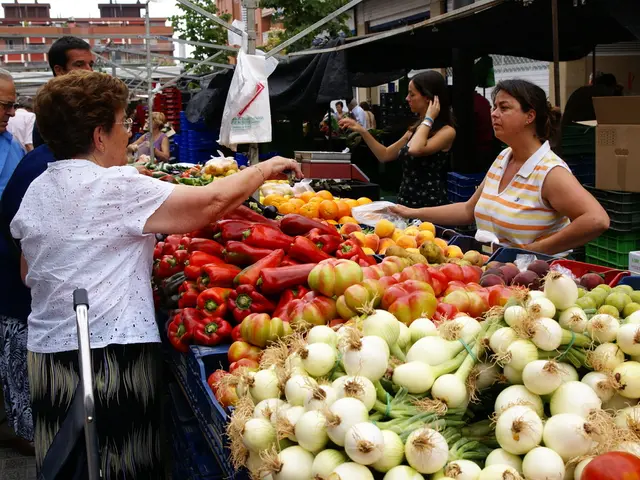A fresh online series explores the influential factors shaping the global power structure
In an era of uncertainty, the "World, Reordering" series offers a scholarly framework for understanding the changing dynamics of international relations, primarily post-World War II. This comprehensive approach delves into the reshaping of the geopolitical and economic order, driven by major events such as decolonization, the Cold War, the rise of new powers, and global interdependencies.
The series, available on the website's "State of the World" podcast and "Up First" newsletter, curates reports from international correspondents and experts, exploring a new way of organizing international relations. It highlights the replacement of colonial empires with independent nation-states and new regional orders, analyzing Cold War ideological and geopolitical rivalries that structured global alignment.
Moreover, the series examines evolving concepts of sovereignty and interdependence in a highly connected world. Postcolonial states, particularly in Africa, challenged traditional Westphalian sovereignty, emphasizing "pooled sovereignty," or shared regional authority through institutions like the African Union. This reflects how the world’s political landscape had to reorder to accommodate new forms of collective governance.
Contemporary global power dynamics continue to reorder with initiatives such as China’s Belt and Road Initiative (BRI), which redefines economic and geopolitical networks worldwide by investing in infrastructure across more than 140 countries. This suggests ongoing shifts in international leadership and influence since WWII, marking a broader "reordering" in the 21st century.
As the U.S. influence decreases, countries are looking to collaborate to fill the perceived vacuum left in areas such as defense and security. They are also reimagining their roles in the world, contemplating a future where they might not be so alone. The fracturing of the "liberal international order," historically associated with globalization, multilateralism, and a rules-based global system anchored by U.S. leadership, is due in part to the resurgence of authoritarian powers.
This series aims to provide a comprehensive understanding of the changing world we live in today. However, it does not offer predictions about the progress and prosperity that might be experienced in the future. The growing sense of uncertainty about the future international dynamics and their potential impact on progress and prosperity is palpable.
In conclusion, the "World, Reordering" series offers a valuable resource for those seeking to understand the complex processes of reordering the world’s political, economic, and social structures after WWII, given the interplay of declining colonial powers, superpower competition, rising globalization, and emergent geopolitical strategies.
- The series delves into policy-and-legislation debates surrounding China's Belt and Road Initiative (BRI), examining its potential impact on credit and investment flows across continents.
- Evolving ESG (Environmental, Social, and Governance) considerations become increasingly relevant as the world reorders, with new regional powers determining their policies in light of war-and-conflicts and general-news narratives.
- Politics plays a vital role in the ongoing discussions on the reordering of the global order, with nations considering meaningful collaborations and reforms to address the received wisdom of the liberal international order's decline.





